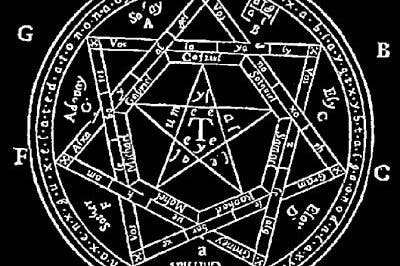You bet your life: Jason Rohrer on his upcoming game that requires betting money
"I would hate to have somebody destroy their life playing my game."
Last month, satire site The Onion ran a story on Shinji Mikami's survival-horror game The Evil Within. The headline: "New Video Game 'Horrifying' For Anyone Who's Never Experienced Terror Of Real Life".
"The monsters will what? Take all of the money out of my daughter's college fund?" balked fake anchor Chad Williams. It's a good laugh for folks with a high fear tolerance, but if the fictional Mr. Williams were to exist he'd be about to meet his non-fictional match with Jason Rohrer's upcoming game Cordial Minuet, a game that can only be played by betting real world money.
I've detailed Cordial Minuet before, but here's a quick recap: two players are each given the same six-by-six grid, though one player will see it flipped 90 degrees so their rows are their opponent's columns. This is no ordinary grid, however, as it's what numerologists call a Magic Square, wherein each row, column and diagonal add up to the same value. In the case of a six-by-six grid, the numbers 1-36 will culminate in 111 across each axis.
At any rate, you pick a column for yourself and another for your opponent. They'll do the same. Since your columns are their rows (and visa versa) your picks will intersect with one another. The goal is to acquire the highest value for yourself and the lowest value for your opponent. This goes on for three rounds until all columns have been chosen. All the while bets can be raised, matched and folded between rounds. As such, it feels a lot like Texas Hold 'Em, its obvious inspiration, but even more fair as all the information is available to each party straight from the start. It's just a matter of reading your opponent.
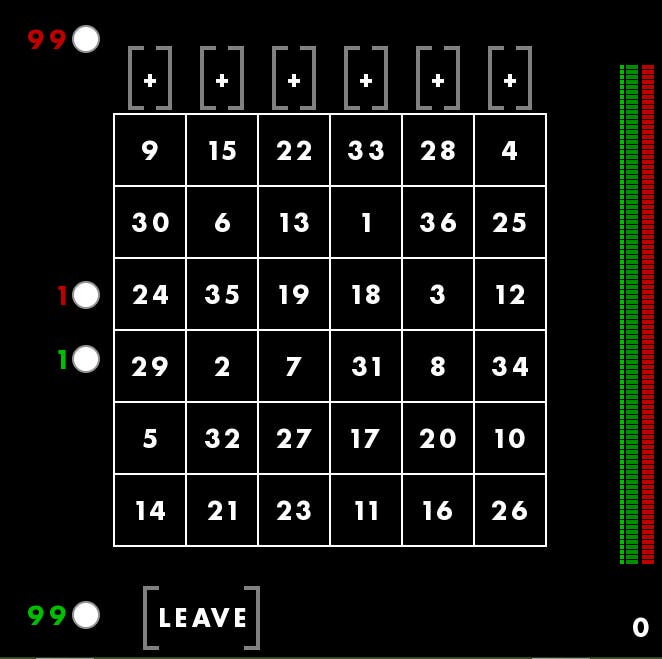
This is harder than it sounds, as there are no external communications between players and opponents are anonymous. "I didn't want a lot of verbal or social interaction," Rohrer tells me. "There's no chat feature. Players don't have names that are visible." There are a few reasons why Cordial Minuet was designed this way.
One reason is to keep the communication to a minimum. "Reading your opponent in this game isn't about reading their facial expressions or whether they're sweating or twitching. It's about reading their moves in the game," he says. "We see tells through the moves that they're making, which I think is a more interesting kind of tell. [You look at] their betting patterns and what they usually bet when they have a good hand versus a poor hand. And how much can I bet to force them to fold? I'm reading their timidity through their moves, not through their shaky voice."
"I like to think of games as this new sort of language interface from one mind to another in this new language that we're both learning to speak - where the words and the language are these moves that we make."
Besides consolidating communication to mathematical interactions, there's another more practical consideration Rohrer had to work out: the possibility of money laundering. "Given that this game is open to an international audience and I'm mailing checks around the world, I've got to be careful that there's not some way that people can use the game as a means of passing money from one another with no paper trail," he explains.
As one would expect, there are a lot of legal considerations Rohrer has had to take into account with this experimental project. You see, in the US laws vary by state. Some states, like California (where Rohrer currently resides) and Nevada allow gambling. Others do not. As a result, poker can't be played online in the United States if it crosses state lines, because it's "subject to chance" even if it's widely considered a game of skill.
"The one exemption in that law is Fantasy Football," Rohrer explains with bemused laughter. "They actually named Fantasy Football explicitly as something the law does not apply to. There have been court cases that have found Fantasy Football to be a game of skill, which is strange because other sports betting is subject to other gambling regulations... it's considered betting on someone else's skill, which has always fallen under the banner of gambling."
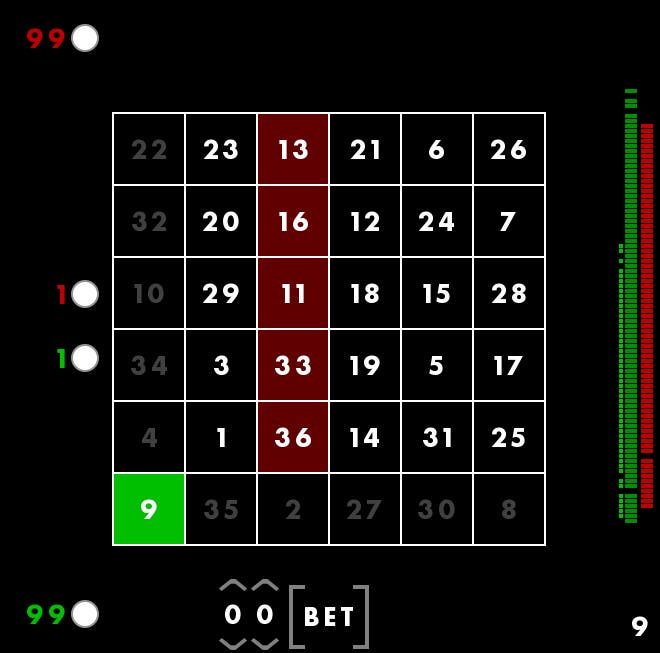
Oddly enough, the only stipulation in Fantasy Football is you can't create teams that exactly match real world teams. This is Fantasy Football after all. But the point is that America has kind of screwy laws about what is and is not skill based. So how does Cordial Minuet stack up against Uncle Sam?
"I was trying to make a game that would explicitly tackle those regulations head on: not being subject to chance and being two players directly pitting their skill against each other," Rohrer says. "Poker fell under the knife because there was an element of chance. Because it was subject to chance. So I made sure there's no random number generator in this game that effects the outcome.... no one would say poker is a game of skill hand per hand, but in the long run experts can win more money than non-expert players."
It's a fair argument for a game that's grid-based mechanics are entirely based on mathematics and intuiting your opponent's personality. But it's not me Rohrer has to convince, but rather the United States federal court, should it scrutinise his upcoming game. He doesn't seem bothered by this, however, as he's quite confident in his ability to understand legal jargon.
"I consider myself sort of an amateur lawyer," he tells me - and not without good reason. "I actually won a first amendment case in court where I was representing myself and I beat a real lawyer." He speaks the truth, and indeed he's created an entire blog dedicated to telling the tale of how he won a case in which he professed his meadow to be a "natural landscape" that needn't adhere to the village ordinance of mowed lawns.
Even if Rohrer can restrict Cordial Minuet to being played with legal tender, does that mean he should? What's the benefit of risking something so precious and important in our capitalist society?
"I believe that games that are played for real money are deeply interesting and interesting on a different level, almost like a different aesthetic level than games that aren't," he tells me. "Games that actually reach into real life in some way, where real life concerns are present at the table, where the choices that you're making aren't just based on what's happening in the game and whether you want to win or not, but also on things like 'can I afford to make this bet?'"
Rohrer notes that playing poker for pretend money isn't really the same and fails to teach you the necessary skills to make real money at it. "In the play money poker rooms I'd see a lot of throwaway play. People don't play the same. If you're trying to practice in play money poker, then you go on to real money poker, people play totally differently."
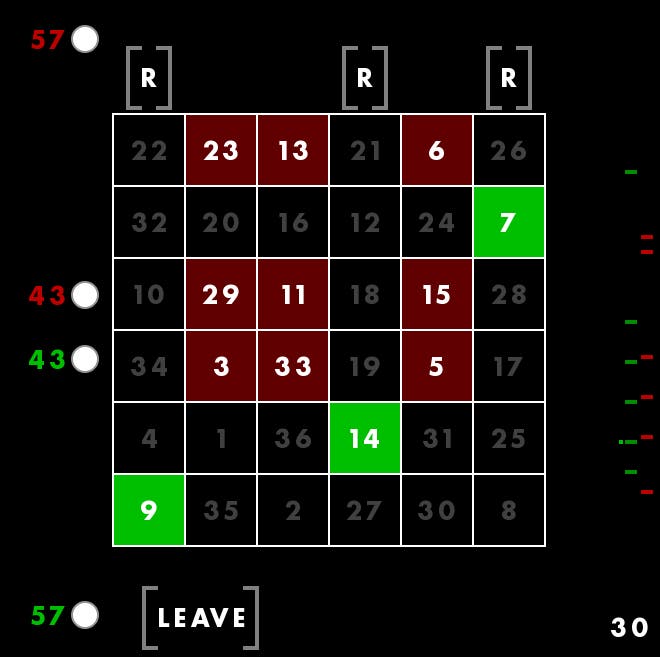
"I don't want people to play [Cordial Minuet] forever without putting real money on the line. That's kind of the point." Yet you can play for as little as a penny per game with each chip being worth a hundredth of a cent. The point is you can play for a long time at negligible values, but even these minute costs feel real when your opponent raises their bet from a hundredth of a cent to (gasp) forty hundredth of a cent.
For small stakes Cordial Minuet's betting isn't of much consequence, but what about upping the stakes? "Are you concerned people might bet too much and the game could have really dangerous consequences for a certain type of person?" I ask.
"I would hate to have somebody destroy their life playing my game," Rohrer says with a hint of worry. "On the other hand, I do believe in individual responsibility."
"I don't want to be so concerned about people not taking responsibility for their own actions that I limit the kinds of things that I create because there's potential for abuse. But I guess there's potential for abuse in every game. Somebody's been up to like level 400 in Inside a Star-Filled Sky... How many dozens and dozens and dozens of hours has this person been playing this game? My mind goes to 'what else could they have been doing with this time that could have been more productive?'"
"You could say 'well at least that person didn't lose their money', but they lost their time which is in many ways even more valuable. Or from their perspective I guess they didn't lose their time, right? They spent their time in a way that they thought was really valuable to them," he ponders. "I'm careful not to try to omnisciently censor certain behaviours or protect people from themselves or play Big Brother.
Rohrer also points out the hypocrisy of online poker that lets you buy fake chips for real money - a tack that has become commonplace in light of federal regulations. Yet people play it anyway as they enjoy the game itself. You see, pretend money poker - like a lot of free-to-play games - refills your virtual currency over time. So if you want to keep playing, you've got to pony up some cash. "It's funny that you can buy play money chips, but the thing that makes it legal is you can't cash out," Rohrer laughs.
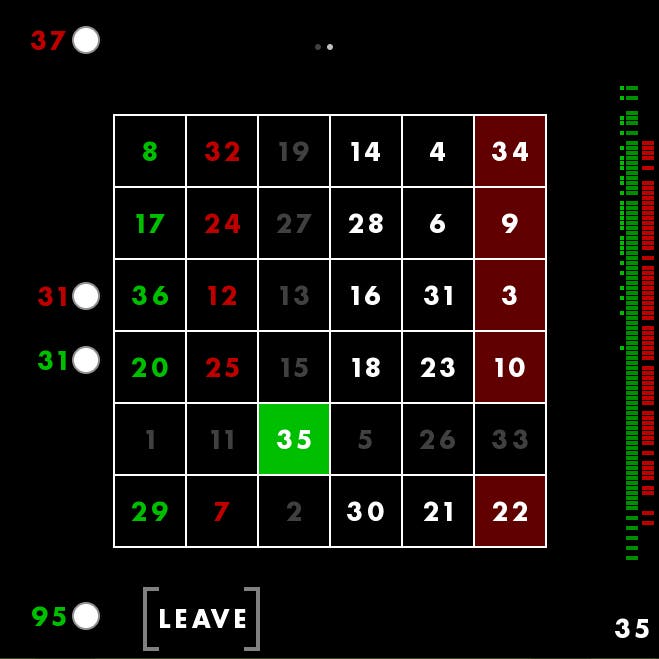
There is another slightly controversial aspect Rohrer is embedding in Cordial Minuet with the addition of a cult-based aesthetic. You see, the six-by-six magic square Cordial Minuet uses actually has heavy ties to the occult. "Historically it's thought of as 'the magic square of the sun', and there are numbers 1 - 36 with each row and each column and each diagonal adding up to the same value - in this case 111," Rohrer tells me.
It doesn't take a rocket scientist to deduce that the total value of the grid comes to 666, which he explains is actually where the superstitious number's legend emanates from. Furthermore, this numerology exercise is where a number of popular demon sigils were born. Allow Rohrer to explain.
"Take a name and convert the letters to the numbers 1 - 26. Then you can find this name in the magic square based on wherever your numbers are and then trace a pattern dot-to-dot between them. This is called a sigil. So in the case of summoning a demon, you take the demon's name, convert it to numbers, then trace it dot-to-dot across the grid and that would create a symbol. And that symbol would be the demon's true name, which is used when you want to summon them."
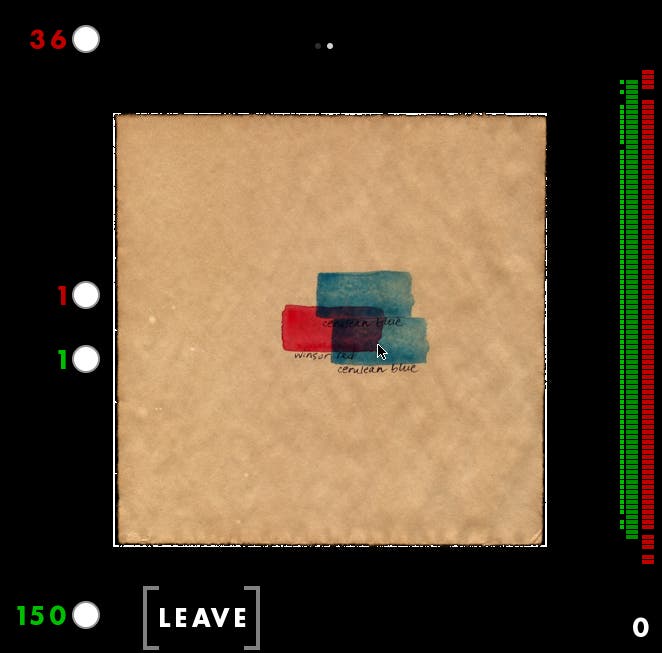
When asked how this works given that there are lots of different ways to arrange a magic square, Rohrer laughs that back in the day people settled for one as they're more than a little arduous to create before the advent of computers. While the occult history tied to the 36 tile magic square is interesting, it's more than just a fun coincidence. To Rohrer, it ties together the whole theme of the game.
"I was reading about the history of gambling and it led me to the relationship between gambling and the occult, and gambling and religion," he says. "Temples doubled as casinos and fortune-telling devices doubled as gambling devices like dice and tarot cards... Sometimes people would use the same devices on Sunday for communing for the gods as they used on Monday for gambling. Or people would come to the house of worship for gambling because they thought the gods would smile upon them."
This makes sense as both gambling and religion involve a heavy degree of faith. Cordial Minuet may not be gambling in the traditional sense as it's a contest of skill, but that hasn't stopped sports enthusiasts from praying before a game of football. Or Fantasy Football for that matter.
"I didn't set out to make a game about the occult, but once I saw this connection I thought it was really strong and interesting," Rohrer exclaims.
"When you're playing a game like this for real money and you're potentially losing a lot of money to your opponent, it does kind of feel like you're summoning a demon."
[Editor's note: To demo the game I deposited the minimum amount of $2, which came down to $1.64 after fees. After playing a few rounds for a few cents, I cashed out with $1.68. Had I bet a little more I could have actually made some money - maybe.]
